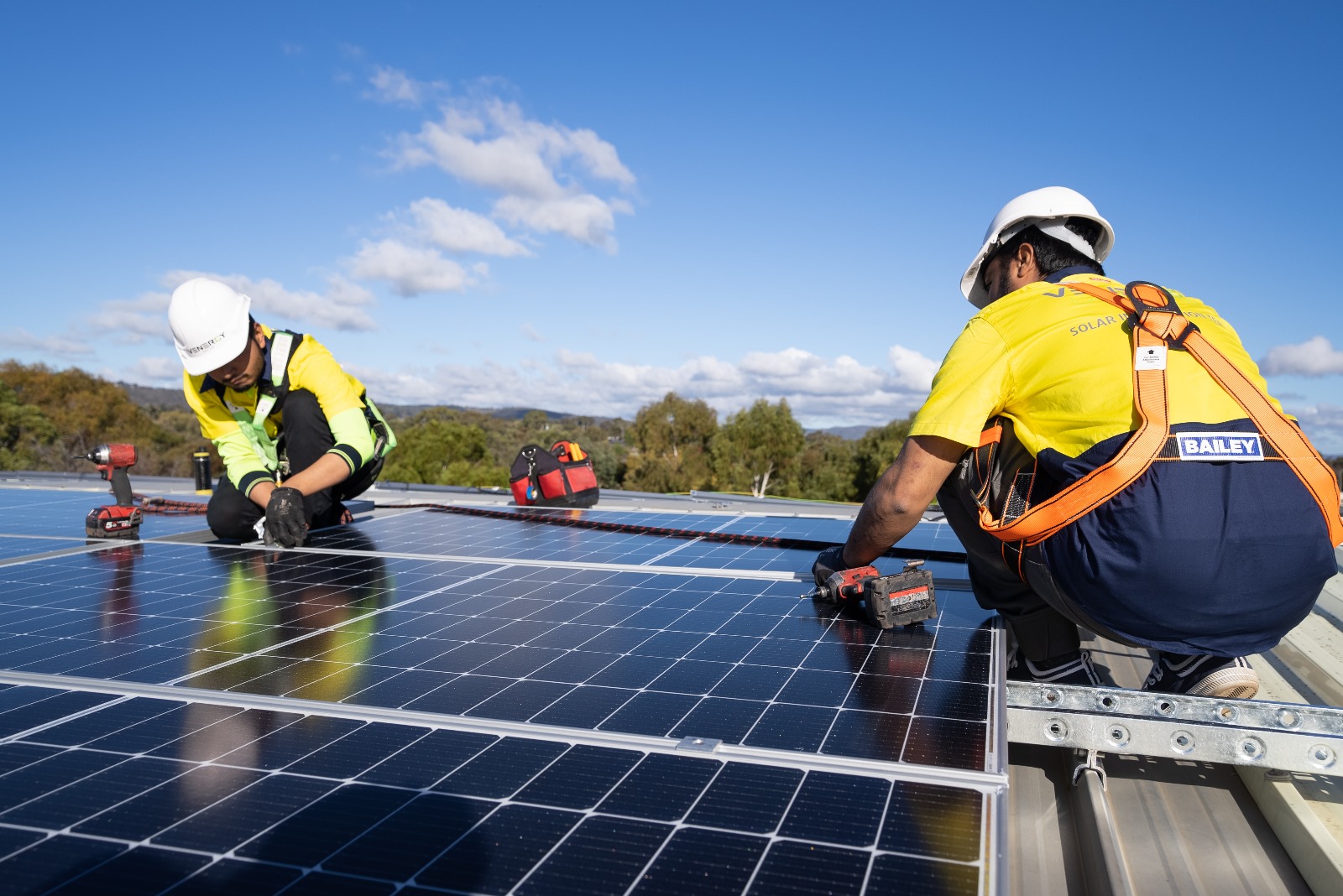Installing solar panels is a great way to embrace renewable energy while cutting down on electricity bills. However, the process of finding a reliable local installer can feel overwhelming with so many options available.
The right installer ensures not only a smooth installation but also a system that performs efficiently for years. This step-by-step guide simplifies the process, helping you make informed decisions and find a trusted professional for your solar journey.
1. Understand Your Solar Needs
Before you start searching for the best solar installer, understand your specific requirements:
Energy Goals: Determine your objectives—whether it’s to lower electricity bills, reduce reliance on the grid, or generate power for off-grid living.
System Size: Estimate the size of the system you’ll need based on your household’s energy consumption. Review past electricity bills for a clearer picture.
Budget: Decide on your budget, keeping in mind the initial costs and the long-term savings.
2. Research Local Installers
Identifying reputable local professionals is the next step:
Online Directories: Explore listings on platforms like Yellow Pages or specialised solar websites. These directories often provide verified options.
Reviews and Ratings: Check online reviews on platforms like Google or Facebook to get insights into customer experiences. Thorough research ensures you have a shortlist of experienced and trustworthy installers.
3. Verify Credentials And Experience
Not all installers are equally qualified, so it’s crucial to assess their credentials and expertise:
Licensing: Ensure the installer holds the necessary licences to perform electrical and solar installations.
Certifications: Look for accredited solar panel installers with Solar Accreditation Australia (SAA) accreditation, a strong indicator of professionalism and compliance with industry standards.
Portfolio: Ask for examples of completed projects. An installer with experience handling systems similar to yours will be more likely to deliver quality work.
4. Request And Compare Quotes
Obtain quotes from several installers to evaluate their pricing and services:
Detailed Breakdown: A good quote includes equipment costs, installation fees, and any additional services like warranties or maintenance.
Warranty Coverage: Check if warranties cover both the equipment (panels and inverters) and the workmanship.
Transparency: Be wary of quotes that don’t explain costs clearly. Hidden charges, such as permit or grid connection fees, should be clarified upfront.
5. Assess the Equipment Offered
Solar systems vary in quality and efficiency, so pay attention to the products the installer provides:
Panel Options: Learn the differences between all the solar panel technology including choosing high-efficiency options.
Inverter Quality: The inverter is critical for converting solar energy into usable electricity. Opt for a trusted brand with a strong history of performance.
Efficiency Ratings: Higher efficiency ratings mean more energy production, especially in low-light conditions, ensuring a high-quality solar installation that maximises the performance of your system.
6. Understand The Installation Process
Knowing what to expect during installation helps set realistic timelines and expectations:
Preparation: Ask if they’ll inspect your roof, conduct a site assessment, or make structural recommendations before installation.
Custom Design: Ensure they tailor the system to fit your roof and energy requirements.
Timeline: Installation can take a few days to weeks, depending on the project size and complexity. Ask for a clear schedule.
Grid Connection: Confirm if the installer handles the paperwork for connecting your system to the power grid.
7. Check Customer Support And Aftercare
The quality of after-sales service can greatly influence your experience:
Communication: A good installer should be accessible and ready to answer questions at every stage of the process.
Maintenance Services: Ask if they provide regular maintenance or troubleshooting services post-installation.
Monitoring Tools: Many installers offer apps or online tools to help you monitor your system’s performance.
8. Explore Financing Options
Solar panels can be a significant investment, but flexible payment options can make it more manageable:
Payment Plans: Many installers offer interest-free payment plans or financing options.
Incentives and Rebates: Ask about government programs or incentives that could lower the upfront cost.
Green Loans: Some financial institutions provide loans specifically for energy-efficient upgrades like solar installations.
9. Review And Sign The Contract
Before committing, carefully review the terms and conditions of the agreement:
Scope of Work: Ensure the contract details what the installer will provide, including materials, labour, and support.
Payment Terms: Understand when and how payments are to be made.
Cancellation Policies: Be aware of your rights in case you need to back out of the agreement.
10. Monitor System Performance
After your solar system is installed and operational, regularly check its performance to ensure it’s functioning as intended:
Monitoring Tools: Use apps or online platforms to track energy generation and detect potential issues.
Maintenance: Arrange regular inspections to clean the panels and assess any signs of damage or wear.
Feedback: Share your experience through reviews or testimonials to help others find reliable installers.
Conclusion
Switching to solar energy is a valuable investment for your home and the environment. By understanding your needs, researching options, and choosing a reliable solar installer, you can enjoy hassle-free installation and long-term energy savings.Following this guide will help you find a network of trusted professionals, like Solar Cutters, who can deliver quality service and reliable solar solutions with their experienced community.

